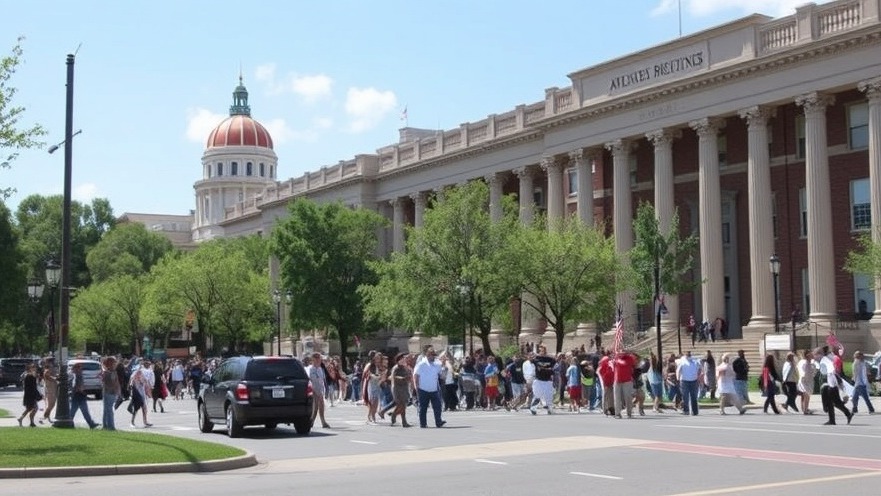
Fayetteville Schools Take Revolutionary Step in Safety
As concerns over school safety escalate nationwide, the Fayetteville school district stands at the forefront with the implementation of a novel silent alert system. This initiative, set to roll out this fall, aims to provide faculty and staff with immediate access to assistance during emergencies, ensuring a proactive approach to student and staff safety.
In 'Fayetteville schools to implement new silent alert system,' the discussion dives into the vital topic of school safety, exploring key insights that sparked deeper analysis on our end.
The Need for Wearable Technology
Deputy Superintendent Dr. Julie Williams emphasizes the importance of this wearable technology, stating that it allows educators to remain engaged in outdoor learning while having a reliable means to call for assistance at a moment's notice. The Synte Crisis alert badges feature multiple options for reaching out in emergencies, from contacting colleagues to directly alerting law enforcement. This multi-tiered approach ensures that the right help is summoned promptly, tailored to the specific needs of the situation.
Legislative Efforts and Community Support
Although a statewide bill aimed at mandating wearable panic alert devices in public schools did not pass during the last legislative session, Fayetteville is not alone in this initiative. The district is following the lead of several others in the state that have successfully integrated this technology. With substantial financial backing—including a $195,000 donation from the Safer Fayetteville Group and support from an Arkansas safety grant—this program positions Fayetteville schools as a pioneer in akin safety measures.
A Step Towards Safer Schools
Dr. Williams expresses optimism about the innovation brought by these safety measures, stating, "This is just another step along the way" to ensuring security for students and staff alike. As more districts look to Fayetteville's example, the conversation around school safety continues to evolve, encouraging broader implementation of protective technologies across the nation.



Write A Comment